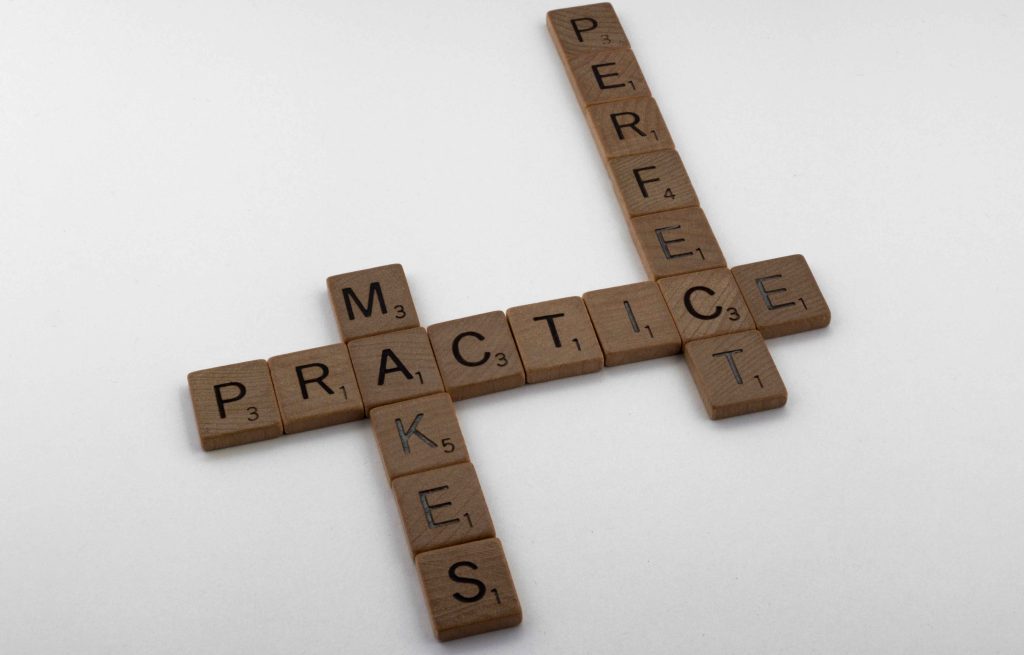
Boosting your recall and improving your cognitive function is not an insurmountable task. It requires commitment and the application of effective techniques to stimulate memory power. Psychologist George Miller, in his study of short-term memory, found that adults can store about seven things before we start struggling, and this understanding can be applied to our daily life. Did you know that physical exercise, specifically aerobic exercise, improves memory? It’s true. Regular physical exercise appears to boost our cognitive functions and provides memory benefits.
Another effective technique involves the use of mnemonic devices. These memory aids, such as acronyms, acrostics, and rhyming mnemonics, not only make learning and remembering information easier but also more fun. Additionally, creating visual cues or visual images can enhance memory recall. Flashcards are a simple and effective tool for this. They stimulate the visual part of our brain, making it easier to remember information. As we delve into these memory recall tips, remember that consistent practice and a good night’s sleep are integral to the process. Lack of sleep can hinder your memory recall and cognitive function.
Understanding How Memory Works
The process of memory begins with encoding, the stage when information comes into our memory system. This phase involves the modification of information to fit the preferred format for the brain’s memory system. It’s important to understand that our memory operates on two levels: short-term and working memory. Short-term memory refers specifically to the temporary storage of information, while working memory includes both storage and manipulation of information, a closer link to intelligence and aptitude.
Enhancing short-term memory boosts overall working memory capacity. As you increase your capacity for storing information, you also enhance your ability to manipulate and use that information effectively. Additionally, remember that our brain, like any other part of our body, benefits from regular exercise. Physical activity, especially aerobic exercise, improves memory and cognitive function. Not only does exercise increase your heart rate, which pumps more oxygen to your brain, but it also aids in the secretion of hormones that provide an excellent environment for the growth of brain cells.
10 Memory Recall Tips
Improving your memory recall doesn’t have to be an uphill task. With the right approaches and techniques, you can significantly enhance your memory power. These ten tips range from mnemonic devices to brain games, all designed to boost your cognitive function and memory recall. Remember, lack of sleep can affect your memory and cognitive abilities negatively. Therefore, getting a good night’s sleep is one of the best ways to improve your memory. Training games also offer an engaging and fun way to boost your memory skills. Let’s delve into these memory-boosting techniques.
1. Acronyms and Acrostics
Acronyms and acrostics are mnemonic devices that can significantly enhance your memory recall. An acronym is a new word formed from the initial letters of a name or phrase, such as NASA for the National Aeronautics and Space Administration. An acrostic mnemonic, on the other hand, uses the first letter of each word in a list to form a sentence. For example, the sentence “Every Good Boy Does Fine” is often used to remember the lines of the treble clef in music.
An excellent example of an acrostic is the phrase “My Very Educated Mother Just Served Us Noodles” to remember the order of the planets in our solar system: Mercury, Venus, Earth, Mars, Jupiter, Saturn, Uranus, and Neptune. By using acronyms and acrostics, you can improve your memory recall and make learning new information a more engaging experience.
2. Rhyming Mnemonics
Another effective memory recall tip involves the use of rhyming mnemonics. These are mnemonic devices that use rhyme and rhythm to enhance memory recall. Just like acronyms and acrostics, rhyming mnemonics make learning fun and interactive, helping to improve memory recall significantly.
Rhyming mnemonics are particularly useful in remembering lists, sequences, or procedures. For instance, children often learn the alphabet through the rhyming mnemonic of the ABC song. The use of rhyme and rhythm aids in the encoding of information into our memory, making it easier to retrieve when needed. Incorporating rhyming mnemonics in your daily life can greatly enhance your memory recall and cognitive function.
3. Music Mnemonics
Music mnemonics is a powerful memory technique that leverages the natural human tendency to remember tunes and lyrics. Research shows that when information is paired with music, it can greatly improve recall. Be it the periodic table of elements or a grocery list, associating the information you wish to remember with a familiar song can make it easier to recall.
For instance, when tasked with remembering a list of items from the grocery store, you could create a catchy tune incorporating all the items. The rhythmic patterns and melodies in the song can serve as effective cues to jog your memory and help you retrieve the information accurately when needed.
4. Write It Down
Writing down what you want to remember is a traditional yet effective memory technique. While it might seem old-fashioned in today’s digital world, research shows that the act of writing can enhance memory recall. This is because writing involves a deeper level of cognitive processing, which reinforces the memory trace in your brain.
In a 2014 study conducted by researchers Pam A Mueller and Daniel M Oppenheimer, they found that students who took notes by hand had a better understanding and retention of the material compared to those who typed their notes. Therefore, next time you need to remember something important, consider jotting it down.
5. Chunking
Chunking is a method that involves breaking down large amounts of information into smaller, manageable chunks. This method is especially useful when dealing with long strings of numbers or large lists. Instead of trying to remember each individual unit, chunking allows you to group them into larger units, making them easier to remember.
For example, consider a long string of numbers. Instead of trying to memorize each individual number, you could group them into chunks of three or four. Research shows that the human brain can remember about seven items at a time, so chunking information into smaller groups can help optimize your memory capabilities.
6. Create a Memory Palace
Creating a memory palace, also known as the Method of Loci, is one of the most effective memory strategies. The loci method involves associating information with specific locations or loci in a mental map of a familiar place, such as your childhood home or workplace. You then place mental pictures of the information you want to remember at these locations, facilitating long-term storage.
To build a memory palace, start by choosing a well-known location and identifying distinct loci within it. Then, assign unique images representing the information you want to remember to these loci. When you need to recall the information, you simply visualize your memory palace and retrieve the images. This method is known for its effectiveness in memory and recall tasks, making it a valuable tool in your memory enhancement arsenal.
7. Get More Sleep
One of the most effective ways to improve memory recall is by ensuring that we get enough sleep. Sleep is a fundamental activity where the brain processes new information and consolidates memories. This makes it a crucial component in the process of memory recall.
Particularly for young adults, achieving six to eight hours of deep sleep every night can significantly boost memory and cognitive functions. This “reset” activity allows the brain to absorb more information, thus enhancing productivity and learning ability. Remember, a well-rested brain is a well-functioning brain.
8. Use Spaced Repetition
Spaced repetition is an efficient memory recall strategy that involves reviewing information at gradually increasing intervals. This method is especially beneficial when trying to remember a large number of vocabulary words. By regularly revisiting these words, the brain strengthens the neural connections associated with them, leading to improved long-term memory.

Start by planning short study sessions each day to review the new information. Over time, increase the duration between the study sessions from daily to weekly, and then to monthly. This gradual increase in intervals allows for the solidification of the memory and aids in recall. Tools like flashcards or apps such as Quizlet can assist in utilizing this technique effectively.
9. Share What You’re Learning
Another practical method to boost memory recall is by sharing what you’re learning. This practice stems from the Protégé Effect, which suggests that explaining information to others enhances our understanding and retention of that information. For example, if you’re attending a seminar or learning a new skill, sharing key takeaways with a friend can help solidify that knowledge in your brain.
During this process, you’re likely to paraphrase and add meaning to the information, which further assists in memory encoding. Explaining the learned concepts in your own words, or even demonstrating them, makes the information more meaningful and easier to recall.
10. Make Visual Connections
Utilizing visual connections is a powerful way to enhance memory recall. This involves turning abstract information into mental images. For instance, if you struggle with remembering names, you can convert the sound of a person’s name into a visual image. Such associations can make the information more memorable and easier to recall.
Color coding is another effective visual technique that can be used to improve memory. By associating certain information with specific colors, you can create a strong visual cue that aids in recall. Whether it’s remembering dates, tasks, or notes, color coding can significantly enhance your memory recall capabilities.
Conclusion
Improving memory recall is a powerful tool not only for learning a foreign language but also in everyday life. By incorporating techniques such as mnemonic images and sharing what you’re learning, you can enhance your memory formation. If you’re a visual person, creating vivid stories or visual connections can be particularly effective. Remember, it doesn’t have to be time-consuming. Spending just 10-15 minutes a day on these techniques can significantly enhance your cognitive function and the ability to recall information. By harnessing these ten tips, you can take meaningful steps towards boosting your memory recall.


























